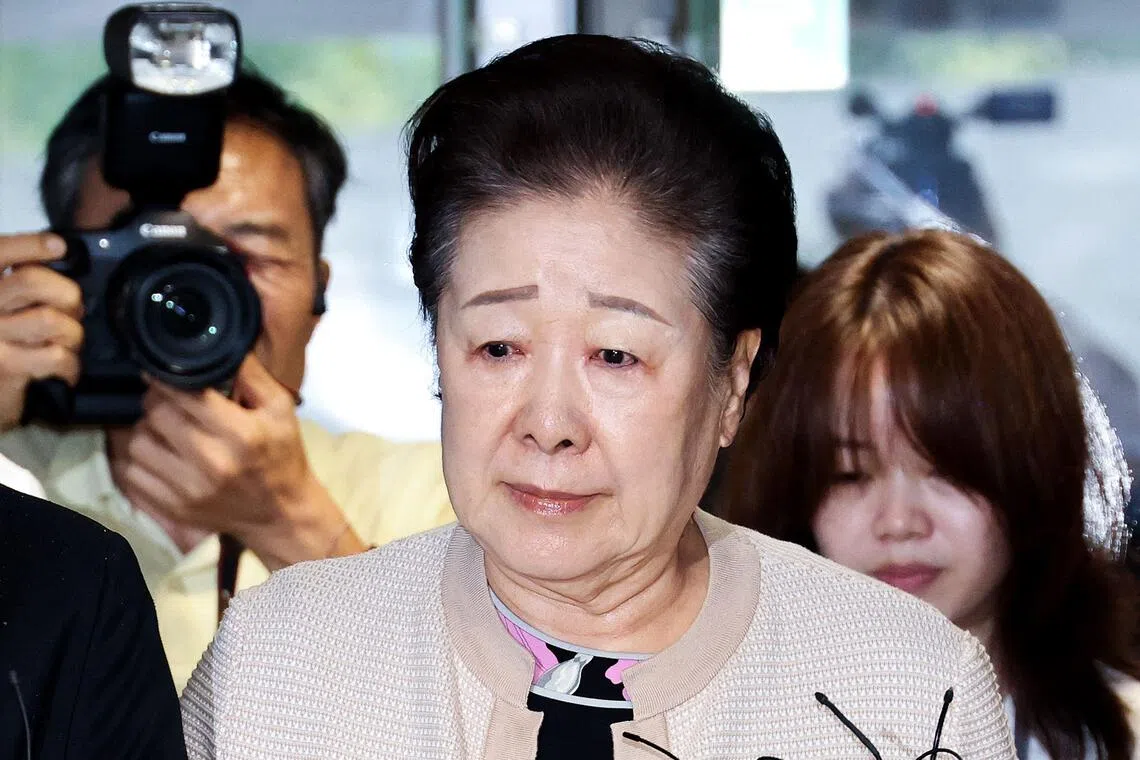Unification Church leader indicted in South Korea bribery case
Sign up now: Get insights on Asia's fast-moving developments

Han Hak-ja took the reins of the cult-like Unification Church after her husband’s death in 2012.
PHOTO: AFP
SEOUL – South Korean prosecutors on Oct 10 indicted the Unification Church’s leader on charges of making illegal donations linked to the nation’s former first lady Kim Keon Hee.
Han Hak-ja, 82, who was arrested in September
The church leader is suspected of involvement in giving a luxury necklace and bags to the wife of now-jailed former president Yoon Suk Yeol.
The Unification Church – often accused by critics of being a cult – was founded in 1954 by Han’s late husband, Mr Moon Sun-myung, and has long been the subject of controversy.
Han is accused of “delivering luxury goods worth about 82 million won (S$75,000) to the spouse of the (former) president on three occasions,” the special counsel team said.
The former first lady has been arrested and indicted
Her disgraced husband, Yoon, is also in custody and standing trial over his declaration of martial law
Han also allegedly conspired with a former church official to give 100 million won to People Power Party lawmaker Kweon Seong-dong in 2022 to seek favour with Yoon, who went on to become president that year.
The special counsel will continue investigating Han and her associates for other possible offences, including alleged violations of the Political Parties Act, investigators said.
After her husband’s 2012 death, Han stepped up to lead the church and is now referred to by members as god’s “only begotten daughter” and the “holy mother”.
The church claims to have around three million followers globally, including 300,000 in South Korea and 600,000 in Japan, and oversees a sprawling business empire encompassing construction, tourism, education and media, among others. AFP


